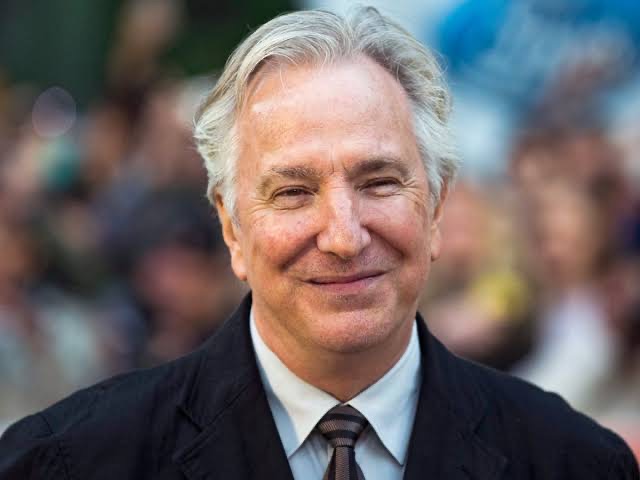The posthumous unveiling of Alan Rickman’s private diaries offers a profound glimpse into the inner life of one of cinema’s most beloved actors. Known for his captivating performances and distinctive voice, Rickman was a cultural icon whose roles ranged from the villainous Hans Gruber in *Die Hard* to the enigmatic Professor Snape in the *Harry Potter* series. However, beneath the surface of fame and critical acclaim, Rickman grappled with personal demons and the complexities of celebrity.
## A Life in the Spotlight
Born on February 21, 1946, in London, Alan Rickman’s journey to stardom was anything but conventional. He initially pursued a career in graphic design before shifting to acting in his late twenties. His breakthrough came in the 1985 Royal Shakespeare Company production of *Les Liaisons Dangereuses*, which showcased his talent and charisma. This performance set the stage for a prolific film career, yet fame brought with it a relentless scrutiny that weighed heavily on him.
Rickman’s diaries, which span several decades, reveal his ambivalence towards fame. Despite his talent and the adoration he received from fans, he often felt like an outsider, struggling with the loss of privacy that accompanied his celebrity status. In his writings, he candidly expresses feelings of inadequacy and fear of being defined solely by his most famous roles. This struggle resonates with many artists who find themselves caught between their personal identity and public persona.
## The Burden of Success
Throughout his career, Rickman encountered both triumphs and challenges. His portrayal of Severus Snape, in particular, became a defining aspect of his legacy. While he appreciated the character’s depth and complexity, he was also acutely aware of the typecasting that followed. In his diaries, he reflects on the frustration of being recognized primarily for a single role, feeling trapped by the expectations of fans and the industry alike.
Rickman often grappled with the pressure to maintain his status as a respected actor while pursuing more diverse and challenging roles. He wrote about moments of self-doubt, expressing concern that his best work was behind him. This internal conflict fueled his desire to seek out projects that allowed him to explore different facets of his craft, yet the fear of disappointing his audience loomed large.
## Personal Struggles and Relationships
The diaries also shed light on Rickman’s personal life, particularly his long-term relationship with Rima Horton, a fellow artist and political activist. Their partnership, which spanned over five decades, was a source of stability for Rickman amidst the chaos of fame. He frequently wrote about the comfort he found in their shared life, even as he battled the insecurities that came with his career.
Rickman’s struggles were compounded by the pressures of Hollywood and the often superficial nature of celebrity culture. He expressed a profound sense of isolation, feeling disconnected from the very world that celebrated him. The diaries reflect his yearning for authenticity and meaningful connections, revealing a man who craved depth over the fleeting recognition that fame provided.
## Reflections on Mortality
As Rickman aged, his reflections took on a more contemplative tone. In the years leading up to his death from pancreatic cancer in January 2016, he grappled with the concept of mortality. The diaries reveal a poignant awareness of the impermanence of life and a desire to leave a lasting legacy beyond his film roles. He contemplated the impact of his work and the relationships he forged throughout his career, seeking to reconcile his artistic ambitions with the realities of life.
Rickman’s candid writings also address the toll that illness takes on the creative spirit. He documented the physical and emotional challenges he faced during his treatment, reflecting on the vulnerability that often accompanies such struggles. This vulnerability allowed him to connect with his audience on a deeper level, showcasing the humanity behind the larger-than-life persona.
## Legacy of an Artist
The publication of Alan Rickman’s diaries not only enriches our understanding of his life but also serves as a reminder of the complexities that accompany fame. His reflections reveal a profound artist who, despite his immense talent, faced the same insecurities and fears that many individuals encounter. The diaries illustrate the dichotomy of being celebrated while simultaneously feeling isolated, a theme that resonates across the arts.
Rickman’s legacy extends beyond his filmography; it lies in the honesty of his struggles and the authenticity of his voice. His diaries invite readers to engage with the man behind the roles, fostering a deeper appreciation for his work and the emotional depth he brought to his performances. Through his writings, we are reminded that even those who seem invincible can wrestle with their inner demons and seek connection in a world that often feels disconnected.
## Conclusion
Alan Rickman’s unpublished diaries provide a rare and intimate look into the life of a man who balanced the joys and burdens of fame with a deep desire for authenticity. His reflections on his career, relationships, and mortality offer a poignant reminder of the complexity of human experience. As fans and admirers continue to celebrate his remarkable contributions to film and theater, the insights gleaned from his writings serve to deepen our understanding of the artist and the person behind the characters he portrayed. In an era where the pressures of celebrity are magnified, Rickman’s journey remains a testament to the enduring power of vulnerability and the pursuit of genuine connection.




